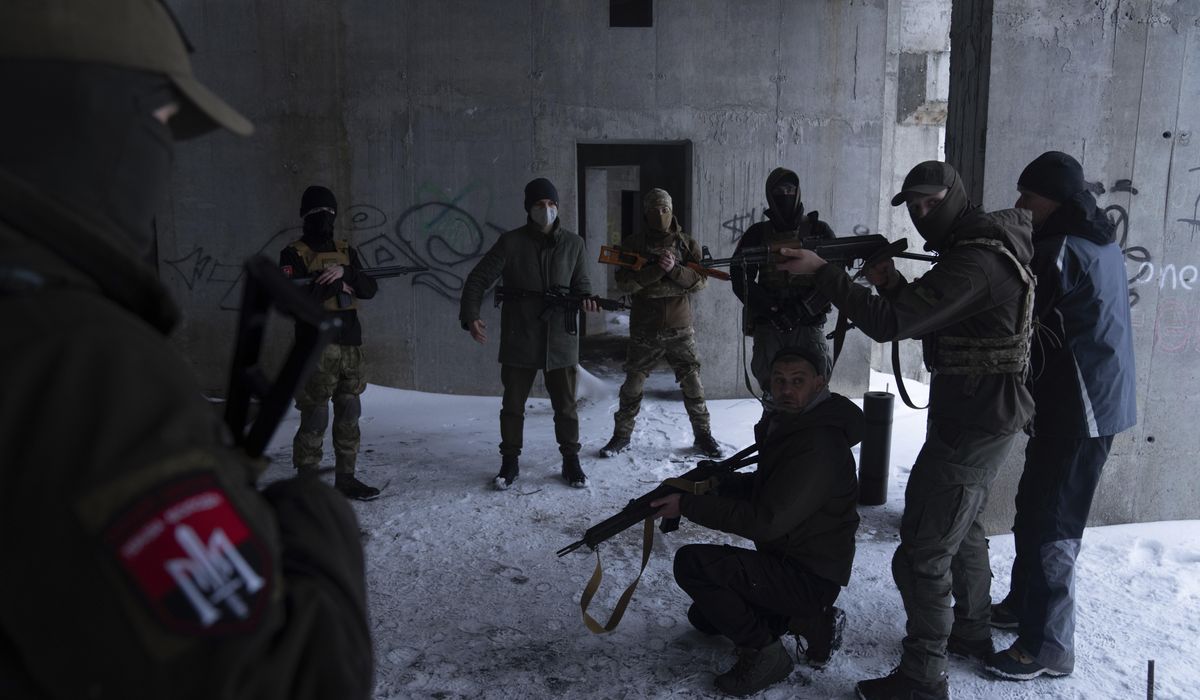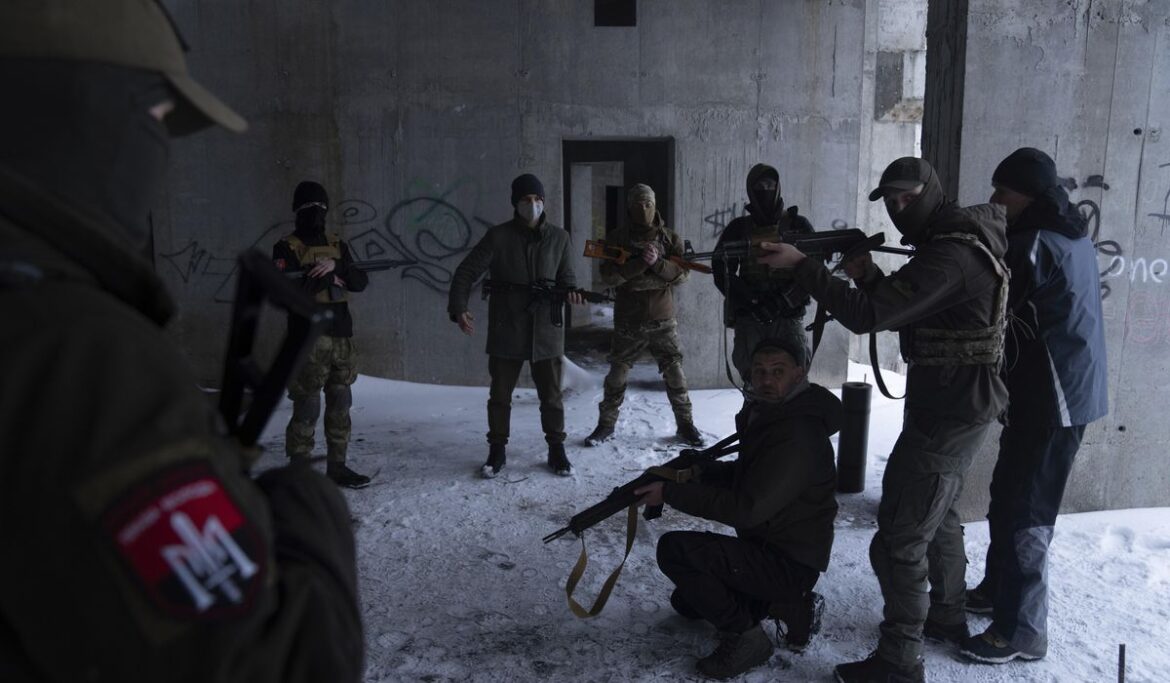
Ukraine mounted a vigorous defense in the initial stages of Russia’s invasion, turning what the Kremlin thought would be a swift campaign and capitulation into a bloody struggle that has moved into a second week.
But Pentagon officials say Russia’s military commanders will readjust and learn from their mistakes.
So what then? What will the U.S. do if Ukraine falls?
Retired Army Lt. Gen. Michael Nagata, who spent most of his career in the Special Forces community and once commanded the Army’s secret Intelligence Support Activity, said he would be shocked if his former colleagues haven’t already been planning for Ukraine’s “right of boom” moment, military slang for what happens after a critical event occurs.
“There is the likelihood of some kind of countervailing insurgent effort by the Ukrainians against a Russian occupation,” Mr. Nagata said in an interview with The Washington Times. “Ukraine has been liberally arming civilian citizens all for this purpose.”
The U.S. has a number of military and intelligence assets able to train and guide “behind the lines” guerrilla fighters. The Army’s 10th Special Forces Group was created soon after the start of the Cold War to lead partisans in the event of Soviet domination of Europe.
But any decision to support an insurgency in Ukraine would require a formal decision by the White House to go down that road, Mr. Nagata said.
“But I am 100% certain the Ukrainians would do it anyway,” he said.
Ron Moeller spent more than 20 years in the CIA as a paramilitary officer, including 12 tours in Afghanistan. He worries that after two decades spent fighting insurgents in the Middle East, the U.S. may have forgotten how to lead such forces against an occupying army.
“They really don’t do it anymore, except during Robin Sage,” he said, referring to the Special Forces exercise in which new Green Berets train and lead a notional guerrilla force in maneuvers in North Carolina.
“Even the instructors that are with them have no background in it. Everything is out of the book,” Mr. Moeller said.
If the U.S. doesn’t take a lead role in supporting a future Ukrainian insurgent movement, other Eastern European countries closer to the scene are likely to provide backing, Mr. Nagata said.
“I wouldn’t be surprised if there are not already conversations percolating in these capitals in countries like Poland,” he said. “There is no love lost between the Poles and the Russians.”
Several objects will have to be met if the U.S. and its allies decide to support an insurgency movement in an occupied Ukraine, including surveying the country after the Russians take control and building crucial local networks, said Max Morton, a retired Marine Corps lieutenant colonel who spent more than a decade as a CIA paramilitary officer.
“I think a lot of it depends on the conditions that are going to shake themselves out on the ground in the next couple of weeks,” Mr. Morton said. “Are they going to take Kyiv and stop at the Dnieper River or are they going to push through all the way to Moldova?”
The U.S. should have been planning for the likelihood of an insurgency movement inside Ukraine for several years. It isn’t a task that can be put together at a moment’s notice. There won’t be much deniability for Washington if the U.S. has to sneak arms or trainers into the country, Mr. Moeller said.
“It’s like trying to build an airplane while you’re flying it,” Mr. Moeller said. “Where do you set up a training environment? Do we set it up in a NATO country? Why don’t we just wave a red flag at [Russian President] Vladimir Putin and say, ‘Here we are.’”
Analysts say the struggle over who controls Ukraine will likely continue long after the final Russian missile strike. While the “kinetic fight” may grab the headlines, other forms of warfare such as in cyberattacks may prove equally, if not more, significant.
“If someone were to ask me today, who is in the best position to win this battle of the narrative, I’d say ‘Advantage Russia.’ They are absolutely willing to lie, cheat and steal,” Mr. Nagata said. “Western democracies feel obliged to tell the truth, to not engage in falsehoods, and to be careful about potential collateral damage.”
Mr. Morton wants Ukraine to emerge victorious in its struggle with Moscow but said there is simply no upside to the U.S. being dragged into a war with Russia.
“I’m not a Russian apologist,” he said. “But as soon as it looks like the Ukrainian military is not going to be able to stop the Russians, then this war needs to stop. Why keep fighting? Why keep destroying cities?”





